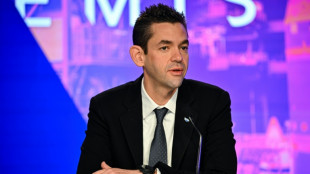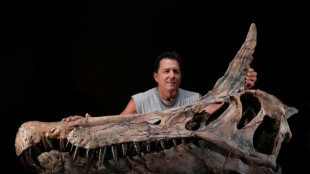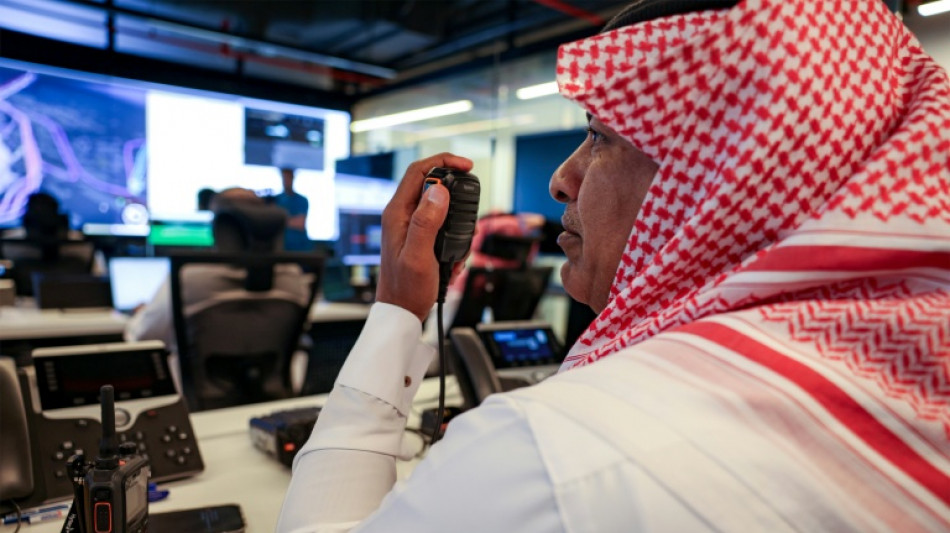
-
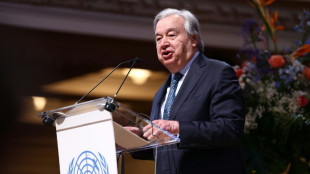 Fears of Mideast war as US-Iran conflict flares
Fears of Mideast war as US-Iran conflict flares
-
Guardiola expects short absence for injured Haaland

-
 Liverpool's set play transformation a return to 'normal' for Slot
Liverpool's set play transformation a return to 'normal' for Slot
-
Man City win to close on Arsenal as Liverpool hit five

-
 Kane bags brace as Bayern end Dortmund's title hopes
Kane bags brace as Bayern end Dortmund's title hopes
-
Semenyo sinks Leeds as Man City close gap on Arsenal

-
 Last-gasp Lukaku saves Napoli's blushes at rock-bottom Verona
Last-gasp Lukaku saves Napoli's blushes at rock-bottom Verona
-
Could the US-Israel war on Iran drag on?
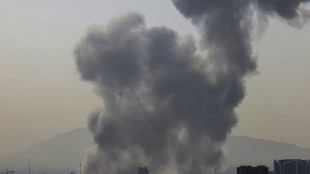
-
 Iranians abroad jittery but jubilant at US, Israeli strikes
Iranians abroad jittery but jubilant at US, Israeli strikes
-
Pakistan 'have underperformed' says Agha after T20 World Cup exit

-
 Under-strength Toulouse overpower Montauban in Top 14
Under-strength Toulouse overpower Montauban in Top 14
-
Vietnam AI law takes effect, first in Southeast Asia
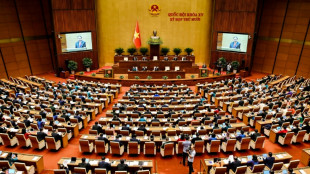
-
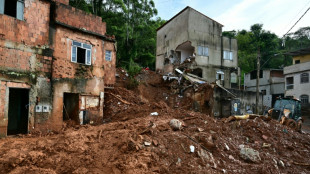 Brazil's Lula visits flood zone as death toll from landslides hits 70
Brazil's Lula visits flood zone as death toll from landslides hits 70
-
New Zealand into T20 World Cup semis as Sri Lanka avoid big Pakistan loss

-
 Medvedev wins Dubai title as Griekspoor withdraws
Medvedev wins Dubai title as Griekspoor withdraws
-
First Yamal hat-trick helps Liga leaders Barcelona beat Villarreal

-
 Liverpool hit five past West Ham, Haaland-less City face Leeds test
Liverpool hit five past West Ham, Haaland-less City face Leeds test
-
Van der Poel romps to cobbled classic win

-
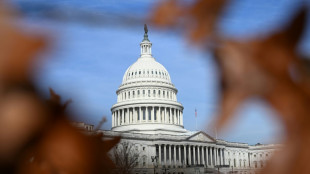 Republicans back Trump, Democrats attack 'illegal' Iran war
Republicans back Trump, Democrats attack 'illegal' Iran war
-
Madonna is surprise attraction at Dolce & Gabbana Milan show

-
 Farhan keeps Pakistan hopes alive as they post 212-8 against Sri Lanka
Farhan keeps Pakistan hopes alive as they post 212-8 against Sri Lanka
-
Afghanistan says civilians killed in Pakistan air strikes
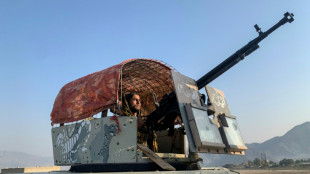
-
 Tug of war: how US presidents battle Congress for military powers
Tug of war: how US presidents battle Congress for military powers
-
Residents flee as Iran missiles stun peaceful Gulf cities
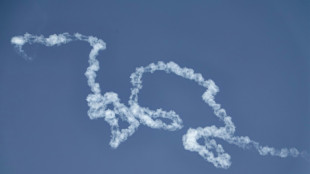
-
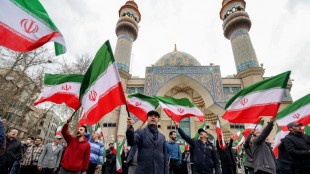 Streets empty and shops close as US strikes confirm Iranian fears
Streets empty and shops close as US strikes confirm Iranian fears
-
Israelis shelter underground as Iran fires missiles
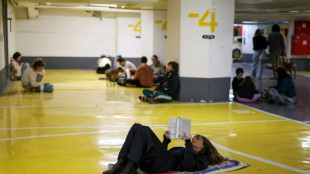
-
 Bournemouth held by Sunderland in blow to European bid
Bournemouth held by Sunderland in blow to European bid
-
VAR expanded to include second bookings and corners for World Cup

-
 Iranians in Istanbul jittery but jubilant at US, Israeli strikes
Iranians in Istanbul jittery but jubilant at US, Israeli strikes
-
Congo-Brazzaville president vows to keep power as campaign kicks off
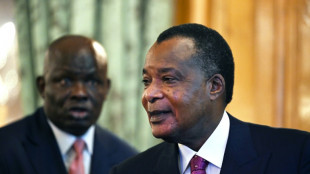
-
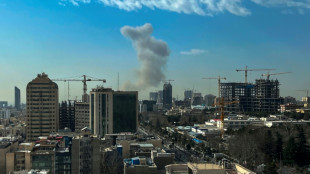 US, Israel launch strikes on Iran, Tehran hits back across region
US, Israel launch strikes on Iran, Tehran hits back across region
-
Germany's Aicher wins women's super-G in Soldeu

-
 Fight against terror: Trump threatens Tehran's mullahs
Fight against terror: Trump threatens Tehran's mullahs
-
US and Israel launch strikes on Iran, explosions reported across region
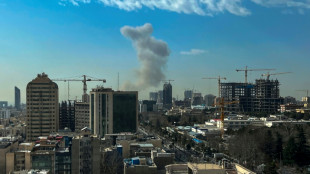
-
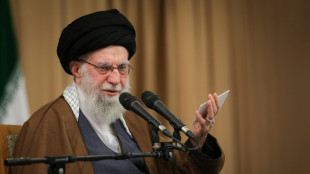 Iran's Khamenei: ruthless revolutionary at apex of Islamic republic
Iran's Khamenei: ruthless revolutionary at apex of Islamic republic
-
In Iran attack, Trump seeks what he foreswore -- regime change

-
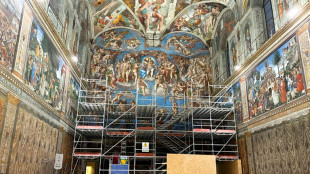 Climate change forces facelift for Michelangelo masterpiece
Climate change forces facelift for Michelangelo masterpiece
-
Trump says US aims to destroy Iran's military, topple government

-
 Acosta wins season-opening MotoGP sprint after Marquez penalty
Acosta wins season-opening MotoGP sprint after Marquez penalty
-
US and Israel launch strikes against Iran
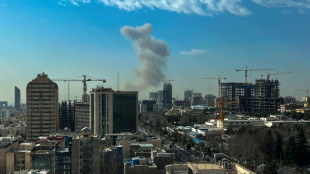
-
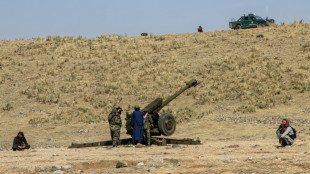 Afghanistan says Pakistan fighter jet down as cross-border strikes flare
Afghanistan says Pakistan fighter jet down as cross-border strikes flare
-
Kerr says only '85 percent' fit for Women's Asian Cup

-
 Messi's Inter Miami to visit White House: US media
Messi's Inter Miami to visit White House: US media
-
Thunder beat Nuggets in overtime on Gilgeous-Alexander's return

-
 'It's surreal': Zimbabwe superfans revel in unexpected ride to India
'It's surreal': Zimbabwe superfans revel in unexpected ride to India
-
New 'Wuthering Heights' film unleashes fresh wave of Bronte-mania
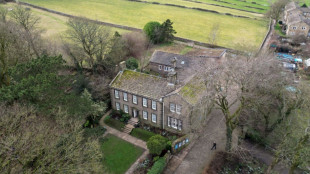
-
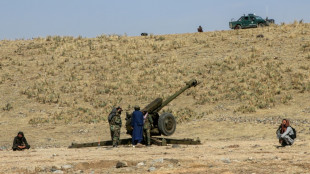 US backs Pakistan's 'right to defend itself' after strikes on Afghanistan
US backs Pakistan's 'right to defend itself' after strikes on Afghanistan
-
Bezzecchi beats Marquez to pole at season-opening Thailand MotoGP

-
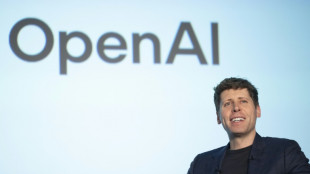 OpenAI strikes Pentagon deal with 'safeguards' as Trump dumps Anthropic
OpenAI strikes Pentagon deal with 'safeguards' as Trump dumps Anthropic
-
Oscar-nominated 'F1' sound engineers recreate roar of racetrack
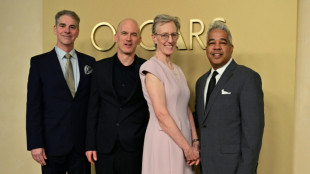

Saudis use AI, drones and thousands of cameras to keep hajj pilgrims safe
Working day and night in front of maps, screens and seemingly endless data, Saudi officials have harnessed artificial intelligence to help manage the million-strong sea of pilgrims during the hajj.
The technology has proven pivotal to track the overwhelming amount of footage from more than 15,000 cameras in and around the holy city of Mecca.
The systems are tuned to spot abnormal crowd movements or predict bottlenecks in foot traffic -- a potential life-saver at a packed event with a history of deadly stampedes.
Software is also used to help guide more than 20,000 buses deployed to transport pilgrims between holy sites during one of the world's biggest annual religious gatherings.
It is all part of the tech arsenal that Saudi Arabia is deploying as 1.4 million faithful from across the globe descend on Mecca and its surrounds.
"In our traffic control room, we use specialised cameras that have AI layers to analyse movements, crowded areas" and predict behaviours, said Mohamed Nazier, chief executive officer for the General Transport Centre at the Royal Commission for Mecca.
The centre has a main control room in Mecca filled with screens and maps, where staff use high-tech tools including AI for round-the-clock monitoring.
About a dozen staff members sit in rows before desktop computers with a large display at the front, zooming in on crowd movements around the holy sites.
On hillsides nearby, cameras that resemble little white robots film buildings, roads and pathways along the hajj route, which winds more than 20 kilometres (12 miles) between Mecca and Mount Arafat.
Nazier said the constant monitoring is aimed at averting traffic collisions with pedestrians on crowded routes while also making sure there are buses available to minimise walking time in the desert heat.
- 'Our eye on the ground' -
It is a decade since the hajj suffered its worst disaster, a stampede that killed up to 2,300 people during the "stoning of the devil" ritual.
Hundreds also died in stampedes in 2006, 1998 and 1994.
In 1990, 1,426 pilgrims were trampled to death or asphyxiated when a tunnel ventilation system failed.
With its cutting-edge technology, "the control room is our eye on the ground," said Mohammed al-Qarni, who oversees the hajj and the year-round umrah pilgrimage at the transport centre.
Artificial intelligence helps to determine "the flow on the (roads to the holy sites), and detects emergency situations even before they occur", he told AFP, adding that the technology can help assess the number of people in a single place.
Cameras and AI can estimate if a site has reached maximum capacity, allowing authorities to divert the flow of pilgrims, Qarni said.
During the holy month of Ramadan this year, the system spotted when the Grand Mosque had reached full capacity.
"The flow to the Haram (Grand Mosque) was stopped and the process controlled," he said.
- Thermal imaging -
The use of advanced technology extends beyond logistics, also tracking unregistered pilgrims, who accounted for most of the 1,301 deaths in sweltering conditions last year.
As temperatures soared to 51.8 degrees Celsius (125.2 Fahrenheit) last year, unauthorised worshippers who lack access to air-conditioned tents and buses bore the brunt. Temperatures are forecast to top 40C this week.
The hajj, one of the five pillars of Islam, must be completed by all Muslims with the means at least once.
Yet not everyone is able to secure or afford one of the official permits, which are allocated to countries by quota and awarded to individuals by lottery.
To try to stop anyone sneaking in this year, a fleet of camera-equipped drones is monitoring entrances into Mecca.
"We use artificial intelligence and other tools like drones and thermal imaging cameras," the director general of public security, Lieutenant General Mohammed bin Abdullah Al-Bassami, told reporters.
Meanwhile, the Saudi Special Forces for Roads Security said it was using "smart thermal imaging" to monitor the perimeter of Mecca and the holy sites.
F.Dubois--AMWN
